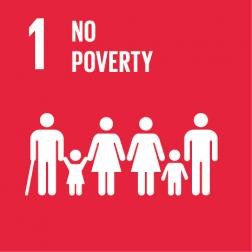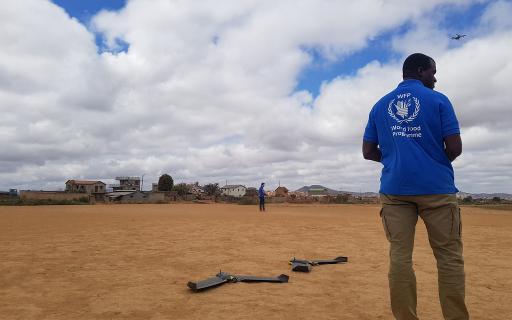'The programme helped us reconnect with society. I joined a cooperative that makes and sells traditional clothing. SOS Children's Villages temporarily covered the school fees of two of my children. And we got a goat for milk and to breed with.'
Ziraji's family is one of over 2,000 families that SOS Children's Villages have assisted in Burundi and DR Congo. The goal is to make families economically self-sufficient so that they can fulfil their children's basic needs, such as through access to medical care, nutrition, housing, and education.
Holistic approach
To do this, the NGO starts from a holistic approach that responds to the multidimensional nature of poverty. After all, poverty is not only a financial issue; it can also manifest itself in terms of health, housing, employment situation, welfare, education or social exclusion. In Burundi today, 78 percent of children are ranked as below the poverty line on at least three dimensions.
'We know that children who grow up in multidimensional poverty are at high risk of losing the protection and care of parents or other caregivers,' says Oscar Nahayo, coordinator of the programme in Burundi. 'Then they are on their own. Through this programme, we absolutely want to avoid that. If we want to sustainably improve a family's situation, we have to start from a holistic picture.'
Digital analysis on 7 dimensions
This is why each support process starts with a social worker who works with the family to conduct an analysis based on 7 dimensions: health, social and emotional well-being, education, livelihood, housing, protection, and shelter. And all this is considered from the child's perspective. They ask the question, 'How does each child in the family score on each of these dimensions?'
Nelly Keza, responsible for monitoring and evaluation in the programme: 'This approach gives us a good idea of where the greatest need lies. Over the course of the five-year programme, we recorded more and more data digitally, thanks to the Programme Database that our federation developed. All information is sent directly to that programme using tablets. Based on the analysis of the 7 dimensions, the social workers, together with the families, draw up an adapted development plan that is tailored to the family. It contains both specific goals and actions for the family and the social worker.'
Each year, social workers perform that analysis again, which allows them to objectively determine whether or not a family has made progress, and in what domains. 'We can adjust each family's programme and work towards their independence,' says Nelly. ‘The database therefore also becomes an important tool for results-based management.'
Multidimensional poverty 50% below the average
Taking all these individual programmes together, we can compare the multidimensional poverty among participants of Ŝanĝo with the national average. At the end of the programme, 28% of the children participating in the programme scored below the poverty line on at least 3 dimensions, where the national average in Burundi is 78%.
Together with local communities
These positive results are due in part to the involvement of the communities surrounding those families. After all, they are involved in running this project, from the identification of the most vulnerable families to the implementation.
They do the latter, for example, by setting up savings and credit unions together with SOS Children's Villages. Some 20 to 30 families pool their funds into these unions. In this way, members can collectively or individually borrow a microloan to start an economic activity, enabling them to become financially independent. At the same time, these unions also create a solidarity fund to support families in the most vulnerable situations.
With the renewed five-year programme 2022-2026, SOS Children's Villages will again be supporting 902 families in vulnerable situations in Burundi and 360 in DR Congo.
Watch the testimonials of Ishara and Christine of Ŝanĝo (Dutch subtitles)



